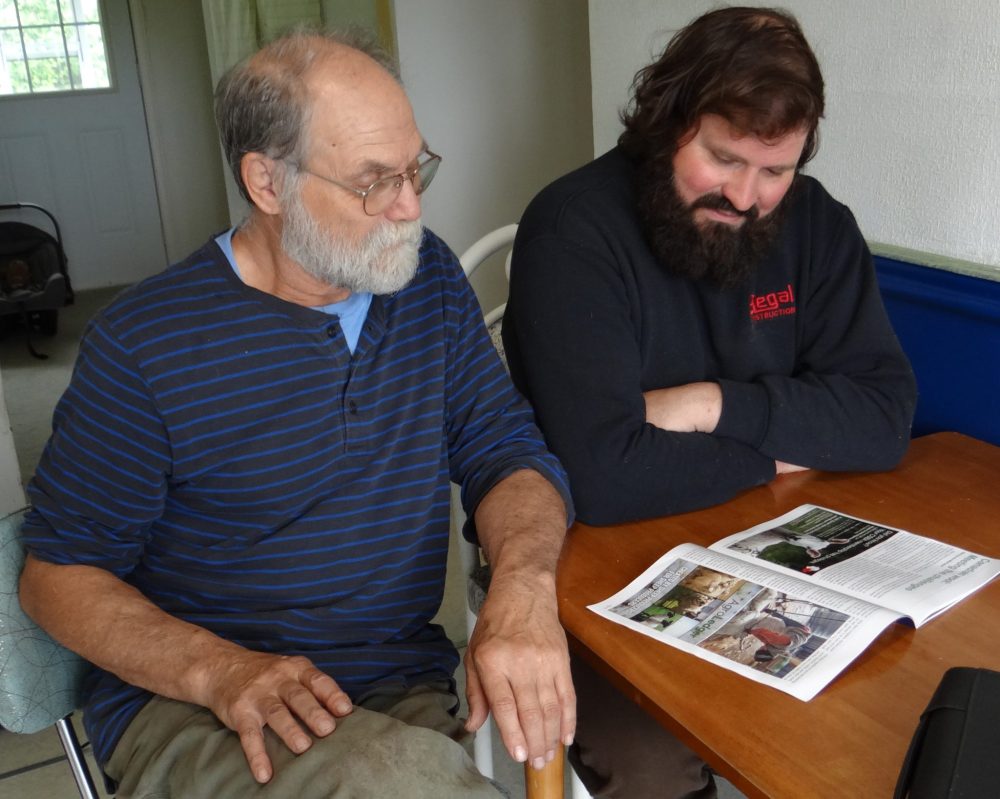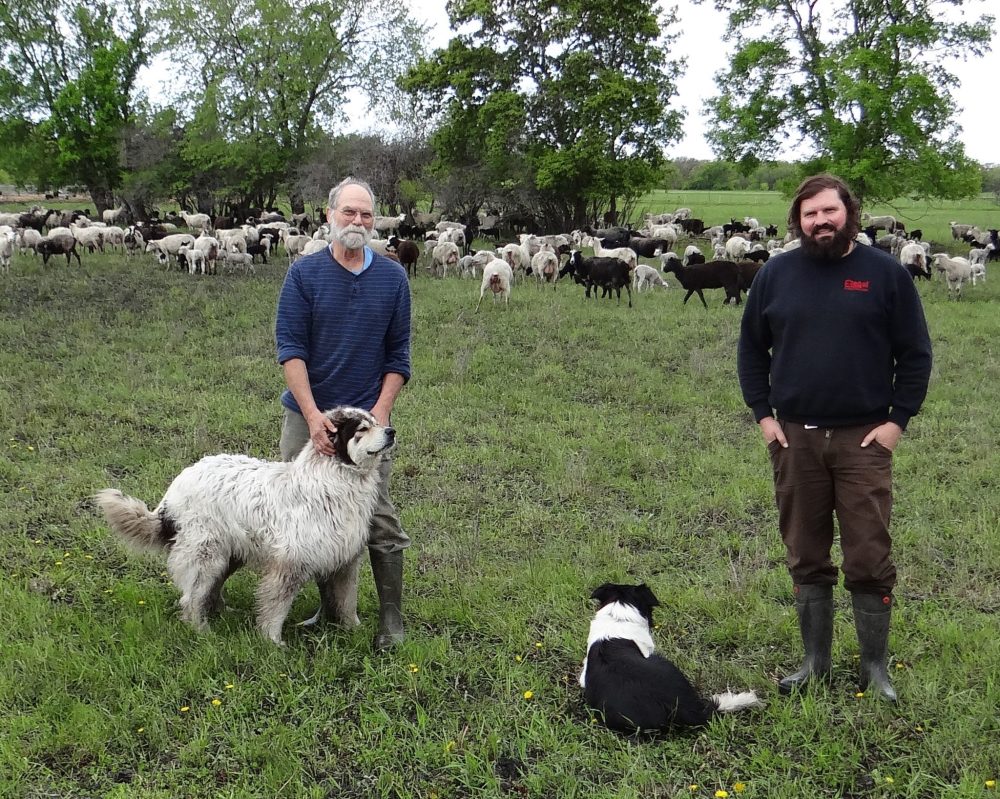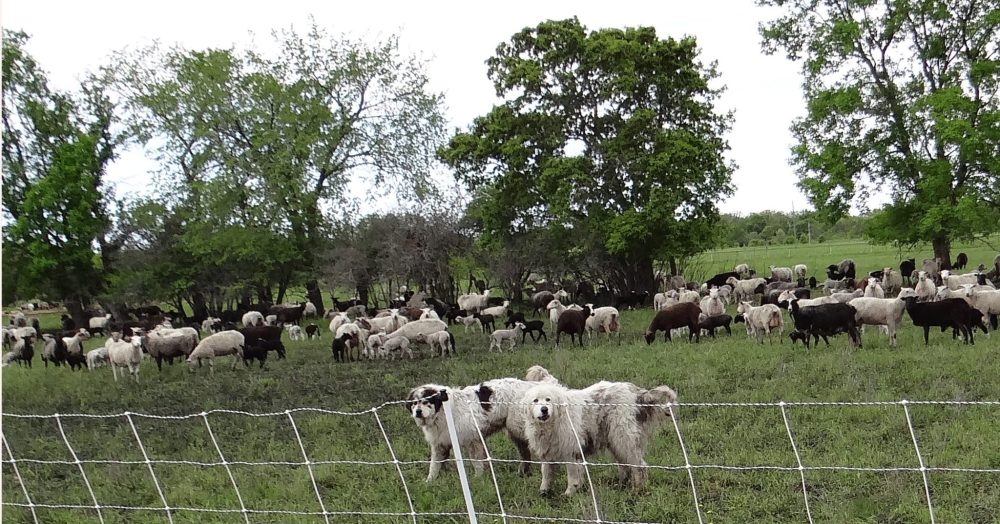Seine River Shepherds expands along with the growing market
Advertisement
Hey there, time traveller!
This article was published 26/06/2024 (187 days ago), so information in it may no longer be current.
After more than 35 years of raising sheep, it may have become time to turn the page for Seine River Shepherds’ Randy Eros. Like most family agricultural enterprises, there comes a time when it becomes a matter of expanding with the next generation taking over, and retiring.
Today, under the watchful eye of Mitch Eros, and a number of guardian dogs of course, the Ste Anne flock has indeed grown by the hundreds, but the senior Eros hasn’t exactly retired.
Since his son Mitch decided to become a full-time sheep farmer and was able to buy the property right next door, Randy says he has become “cheap labour” at Seine River Shepherds. His still busy schedule includes time to pursue his other interests, like publishing and editing Sheep Canada magazine and serving as deputy reeve for the Rural Municipality of Ste Anne.

Mitch and his wife Anna, who teaches at a Steinbach elementary school, bought the farm from Robert and Patricia Brisebois in April of 2022.
Before that the Eros had been renting everything but the barn for years. Mitch says moving to the yard and the addition of the availability of the barn during lambing season makes it that much more feasible to grow the flock. First-time lambing ewes do so much better when they are separated from the rest of the ewes during lambing season, he explained.
Mitch had been working full-time at the farm from April to October and at an off farm job for the rest of the year. Now he devotes his energy to the farm year-round.
The opportunity to live and work at the farm east of Ste Anne came in the fall of 2021 when the neighbors, who shared a driveway with Randy and Solange, approached him, having decided to sell to sell their place. Mitch and his wife moved in in April of 2022.
Mitch now has increased his flock to 330 ewes and would like to continue expansion to 400. To that end, he has been holding back more ewe lambs and renting more land from the neighbors as Seine River Shepherds keeps expanding.
The flock being pasture-raised this summer numbers approximately 850, including 550 lambs. A 20-acre pasture is divided into a number of five to seven-acre parcels, fenced in with portable electric fences, to utilize rotational grazing. The rest of the land is put into hay or seeded to other crops.
Seine River Shepherds is located on the long and narrow configuration of the traditional Manitoba river lot, which is not the best for modern farming’s large crop production equipment. It is a comfortable set-up for the family-run sheep operation, with the shared-use arrangement with a neighbor nearby.
Land is rented from their neighbor for hay production, and after four or five years it is turned back to be seeded to crops. The neighbor is a grain farmer who grows cereal crops and oilseeds, and that makes it perfect.

In the paddock, along the driveway where the flock is grazing, huge guardian dogs are ready to take care of any predators that may manage to elude the electric fence. Both Randy and Mitch say they haven’t had any predators in the last decade and so the dogs haven’t had much to do, beyond keeping watch. That’s probably a good thing, for most of the Eros’ dogs are young and still learning their role in guarding the sheep and warning of impending dangers.
Randy says it takes three years before guardian dogs are mature enough to be worth anything. Before that, they don’t know what to bark at and just bark at everything. But the Eros suggest, just to be safe, photos should be taken from the other side of the fence.
In addition to the guardian dogs, there are two border collies, one each for Randy and Mitch, to herd the sheep from pasture to pasture. Randy agrees it could be said the dogs are the other half of the farm’s cheap labor.
Seine River lambs are mostly sold at the Grunthal Auction Mart or at a weekly auction in Winnipeg. Most are destined for an eastern market, like Toronto, where lamb is most popular with restaurant goers and a favorite with newcomers to Canada. But even with an increase in production, Canadian producers cannot come close to meeting the domestic demand.
Only 40 percent of lamb consumed in Canada is grown here, and that fact alone, augers well for the continued expansion of Seine River Shepherds and other Canadian sheep producers.
In the past, close to 300 market lambs would go to a buyer in Western Manitoba. Now, that buyer still buys Seine River lambs, but from the Grunthal or Winnipeg auctions.
The ewes at Seine River are a good commercial cross of two breeds. There is the purebred Ile de France and the Canadian developed breed Rideau Arcott.

The Ile de France is a terminal breed, with fast growing market lambs with good carcasses and confirmation. The Rideau Arcott, on the other hand is a maternal breed, producing a lot of lambs. That makes Rideau Arcott especially popular with shepherds, who often say the first lamb covers the cost of keeping the ewe. It’s the second lamb that puts money in the pocket of the shepherd.
In addition to auction mart sales of lambs for both the meat and the finishers’ market Seine River Shepherds offers direct sales of cuts of lamb and whole lambs for the freezer.
Their website has an order form and prices for whole lamb and all the favorite cuts like rack of lamb and leg of lamb.
Lambs are ready from October to March, and Seine River will make arrangements to have whole lambs delivered to a butcher or have it cut and wrapped for customers
While the Eros no longer market added-value wool products at St Norbert Farmers’ Market during the summer months, Randy, Mitch and Solange still create a variety of items that are available to be ordered on-line from their website.
Parkas, vests, mitts, hats, men’s and ladies’ slippers, and even infant booties, are displayed at seinerivershepherds.com.
Randy says wholesale sales and on-line sales is a much more practical way for them to direct market their products. Attending the farmers’ market every week meant someone had to stay at the farm to take care of things there.
By providing value-added lamb and wool products direct to the customer, the Eros say they are better able to maintain their farm operation.

At the same time, delivering small loads of lambs every week to the local auction marts is usually a more desirable marketing method than putting together semi-trailer loads with other producers to be shipped east.
The price may be better in the eastern Canadian market, especially at holiday times, but producers have to consider that the price has to be $30 to $40 a hundredweight better, just to cover shipping costs.
When the father and son team is asked about their future plans for Seine River Shepherds, the answer is, “More of the same, only bigger.”
For Mitch, that means more ewes, lambs and pasture land. For Randy that means more pages, more advertisers, and more subscribers for the next issue of Sheep Canada magazine.
